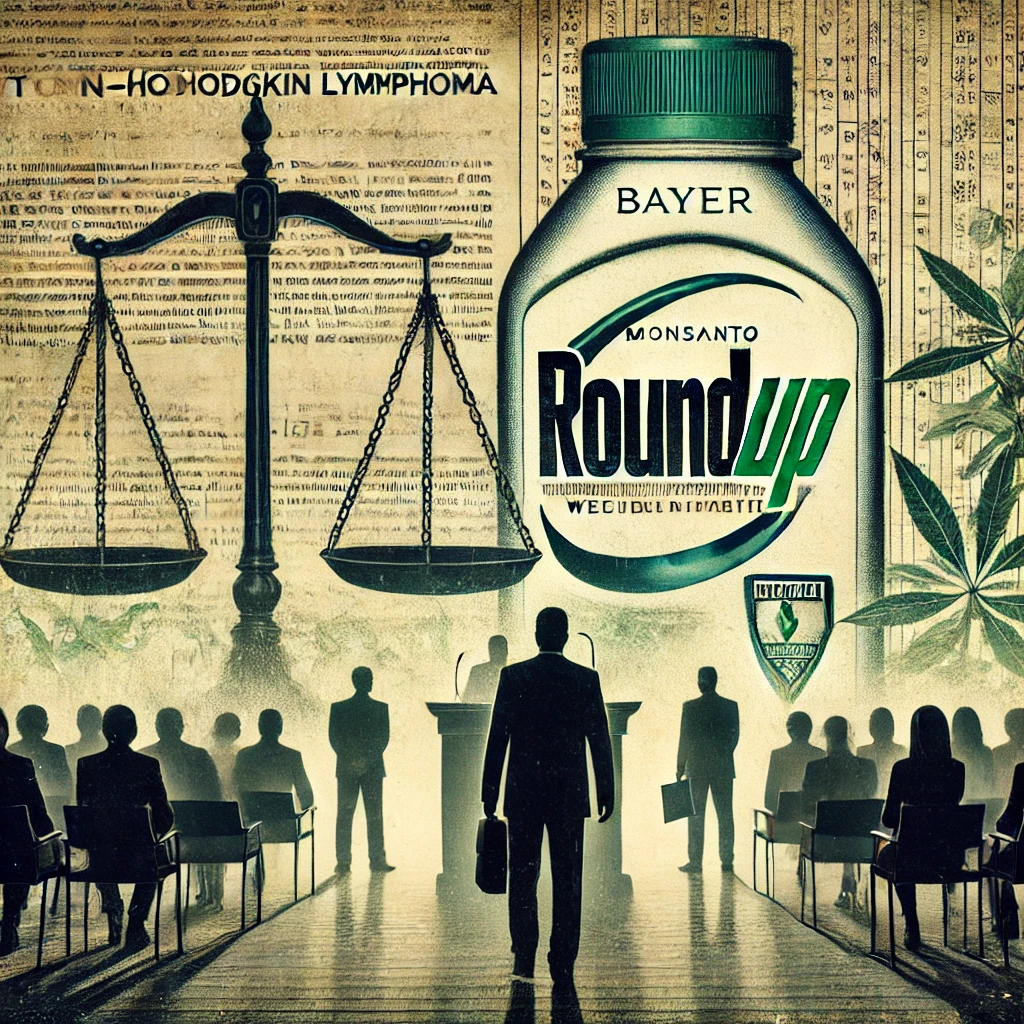Growing Lawsuits Against Monsanto (Bayer) Reflects Serious Health and Environmental Concerns
September 16, 2024 - USA
More than 18,000 individuals have filed lawsuits against Monsanto, the agrochemical company now owned by Bayer, alleging that its popular weedkiller Roundup has caused serious health issues, including non-Hodgkin lymphoma. This wave of lawsuits continues to grow, even after Bayer has faced multiple legal losses, forcing the company to offer billions in settlement agreements. However, despite the seriousness of this public health and environmental issue, mainstream media coverage remains limited.
The core of the lawsuits is centered on the active ingredient in Roundup, glyphosate, which has been labeled as potentially carcinogenic by some studies. In 2015, the World Health Organization’s International Agency for Research on Cancer (IARC) classified glyphosate as "probably carcinogenic to humans." Since then, Monsanto and Bayer have faced growing legal challenges, particularly in the U.S., where court rulings have awarded significant sums to plaintiffs. In one high-profile case in 2018, a California jury awarded $289 million to a groundskeeper, later reduced to $78 million, after the court ruled that his cancer was linked to Roundup (Inlander).

Legal Battles and Billion-Dollar Settlements
While Bayer has publicly defended Roundup as safe for agricultural and residential use, its legal woes continue to mount. In 2020, the company announced it would allocate more than $10 billion to settle approximately 95,000 cases, aiming to avoid future litigation. However, that settlement did not cover the thousands of cases still pending, leading to the current figure of over 18,000 active lawsuits (Inlander).
One of the core allegations is that Monsanto knew about the potential health risks of glyphosate exposure but failed to warn consumers adequately. Although Bayer maintains that scientific studies support the safety of the product when used as directed, critics argue that the company's influence over regulatory agencies may have obscured the full extent of the risks. This has sparked debates over corporate responsibility, regulatory oversight, and the role of science in protecting public health (Ground News).
Environmental and Public Health Implications
Beyond the legal ramifications, the Roundup controversy highlights a broader concern about the environmental and public health impacts of widespread herbicide use. Glyphosate is one of the most commonly used herbicides globally, and its use has implications for biodiversity, soil health, and water contamination. Several environmental advocacy groups have called for stricter regulations on herbicide use, particularly in light of the ongoing legal battles that have raised questions about the long-term effects of glyphosate exposure.
The lawsuits and settlements represent only one aspect of the growing scrutiny on agrochemical companies and their influence on modern agricultural practices. The extensive use of chemicals like Roundup in farming raises concerns about the sustainability of these practices, especially as regenerative agriculture and organic farming methods gain attention for their potential to reduce environmental harm (Ground News).
Limited Media Coverage and Public Awareness
Despite the significant legal and environmental implications of the Monsanto lawsuits, media coverage remains limited, particularly in mainstream outlets. While some environmental and public health organizations have been vocal in raising awareness about the dangers of glyphosate, the broader public discourse on the issue is far from reaching the same level of attention as other corporate scandals.
This lack of visibility in the media raises questions about how environmental and public health issues are prioritized in news coverage, especially when compared to high-profile political or economic stories. The ongoing lawsuits, which could set important legal precedents for corporate accountability, warrant greater public attention and discourse, given their far-reaching consequences (Inlander)(Ground News).
The Road Ahead for Bayer and Monsanto
As Bayer continues to settle thousands of cases related to Roundup, it faces the dual challenge of defending its product while attempting to mitigate its legal liabilities. The future of glyphosate, particularly in the U.S. market, remains uncertain. Several countries have already moved to ban or restrict glyphosate use, and increased regulatory pressure could potentially follow in the wake of the ongoing lawsuits.
For now, the legal battles continue, but the broader issues raised by the Monsanto lawsuits—corporate responsibility, environmental sustainability, and public health—are unlikely to disappear anytime soon.
This unfolding saga represents not just a legal fight, but a turning point in the global discussion about the use of chemicals in agriculture and the long-term implications for human health and the environment.
